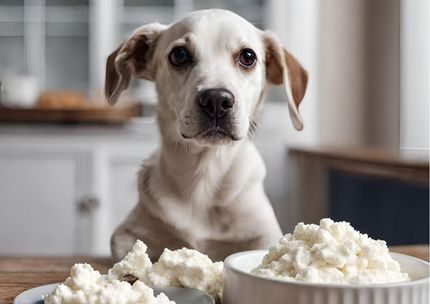Coughing in dogs is not only a common but also a multi-faceted health problem that often confronts dog owners. The variety of potential causes ranges from harmless irritations to serious health concerns. It is therefore of utmost importance that a veterinarian is consulted to diagnose the specific cause of the cough. This professional assessment is crucial to ensure appropriate and effective treatment.
In-depth look at coughing in dogs and the role of home remedies
Despite the need for expert veterinary care, there are a number of home remedies that have proven effective as supportive measures. These home remedies are not only easily accessible, but also offer a gentle way to alleviate the dog's discomfort and aid its recovery process. This article presents five such home remedies that are recognized for their effectiveness in relieving cough symptoms in dogs.
From natural herbal teas to hot water bottles, these home remedies utilize the power of nature and gentle healing methods to promote your dog's well-being. While they are not a substitute for professional veterinary treatment, they can be a valuable addition to your four-legged friend's medical care.
This article will detail these home remedies, explain their uses and discuss their potential benefits for dogs suffering from coughs. Our aim is to provide dog owners with practical and useful information to alleviate their faithful companion's suffering and support a path to recovery.
Examination by a vet: an essential first step
It is strongly recommended that a veterinary examination is carried out before home remedies are used. Various diseases can cause coughing and an accurate diagnosis is crucial for appropriate treatment.
Five effective home remedies for coughs
This section presents the five most effective home remedies that can help with coughs:
Ginger: A natural remedy to be used with caution
Ginger is known for its antibacterial and anti-inflammatory properties, but should only be administered in small quantities due to its spiciness.
Medicinal herbal teas: Natural relief for dogs
Medicinal herbal teas, including chamomile, fennel and sage tea, are valued for their antibacterial and anti-inflammatory properties. It is recommended that the tea is offered to the dog after it has cooled. For the dog's safety, organic quality and the absence of additives should be ensured.
Fennel honey: a sweet immune booster
Fennel honey is known for its pain-relieving properties and can be used in small amounts to support the dog's immune system.
Hot water bottle and scarf: comfort and warmth for the sick dog
Sounds strange, but it's true. A hot water bottle provides extra comfort and can help to alleviate the symptoms of a dog with a cold. A scarf can provide extra warmth and support for the neck.
Inhalation: An alternative method for dogs
Inhalation, e.g. with chamomile tea or sea salt, can be performed in a prepared environment to allow the dog to breathe in water vapor.

Recognizing the causes of coughing in dogs
This section explains three main causes of coughing in dogs: colds, viral infections and airway inflammation. Each of these conditions requires careful observation and possibly veterinary treatment.
The importance of veterinary advice
The emphasis on the need for a veterinary examination for canine coughs cannot be overemphasized. While home remedies can play an important role in relieving symptoms, their effectiveness is limited when it comes to treating the underlying causes. Coughing in dogs can be a symptom of a variety of conditions, from mild allergies to more serious conditions such as pneumonia or heart disease.
A veterinarian will be able to perform a comprehensive examination that will not only provide an accurate diagnosis, but also suggest the best treatment plan for your dog's individual case. This examination may include a thorough physical examination, lab tests, x-rays or other diagnostic procedures. Through these diagnostic steps, the veterinarian can determine the exact cause of the cough, whether it is an infection, allergic reaction, chronic disease or other health disorder.
In addition, the vet can assess the severity of the condition and decide whether specialized treatment is required. In some cases, home remedies may be contraindicated or even worsen the dog's condition. Therefore, it is crucial that any treatment, including the use of home remedies, is done under the supervision or with the approval of a qualified veterinarian.




















